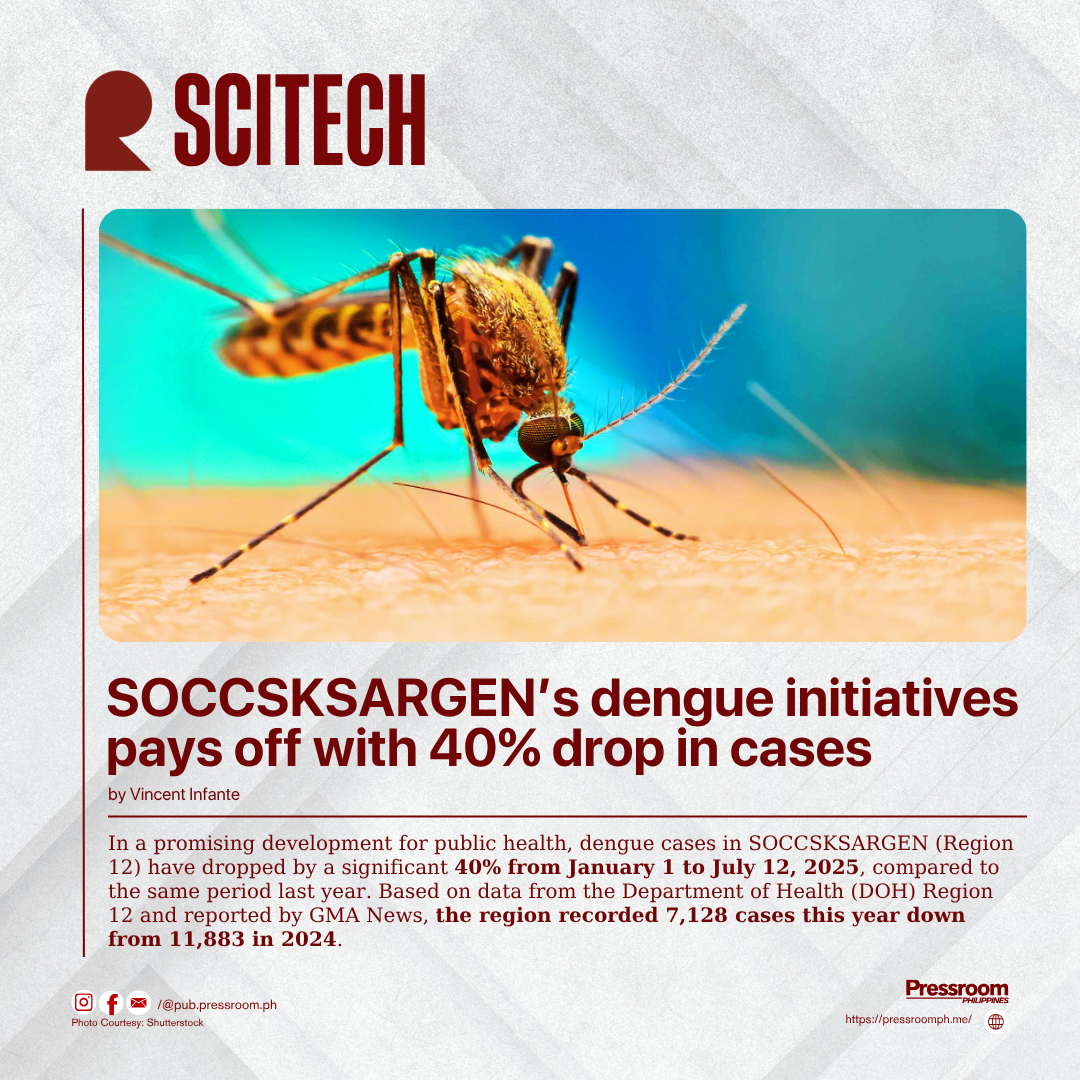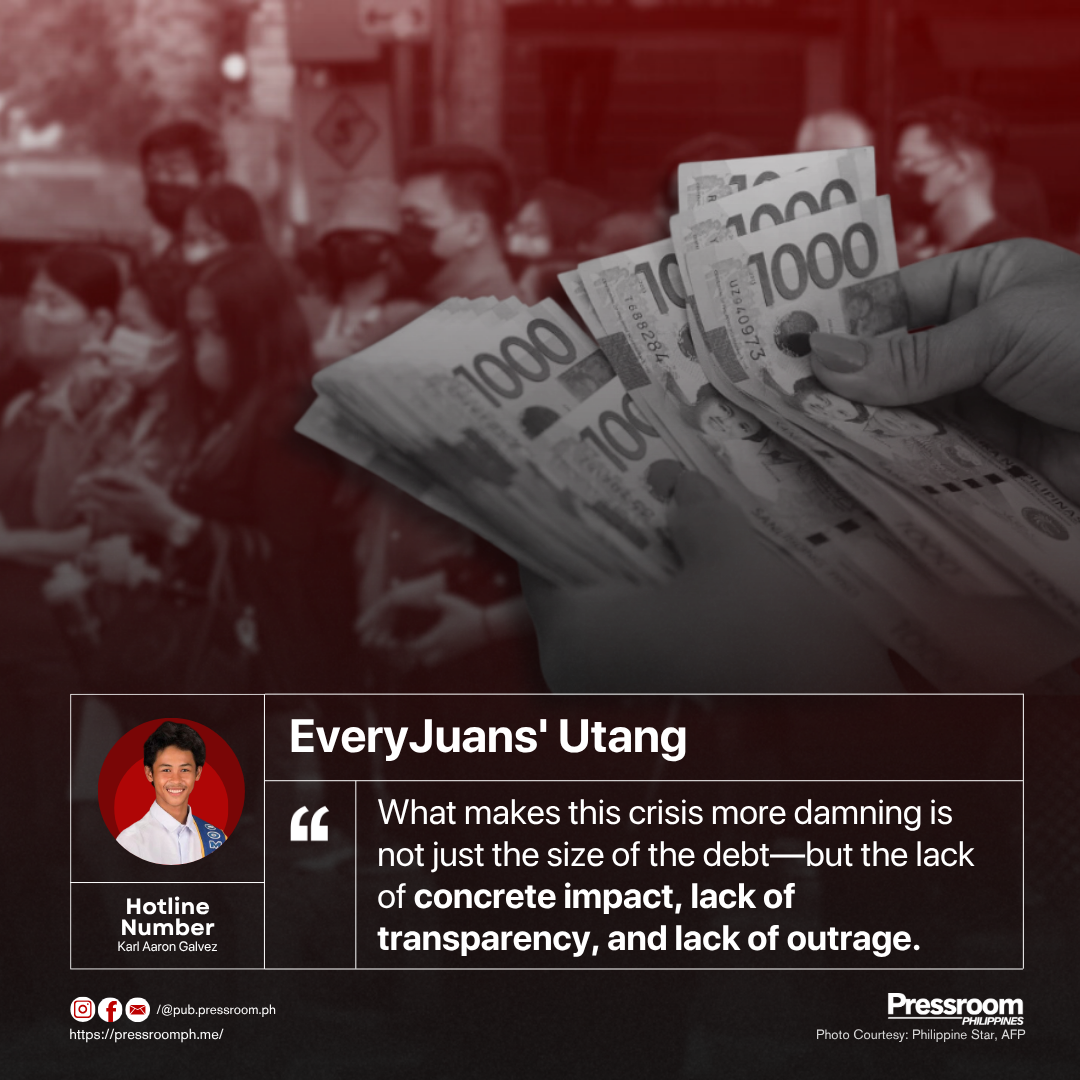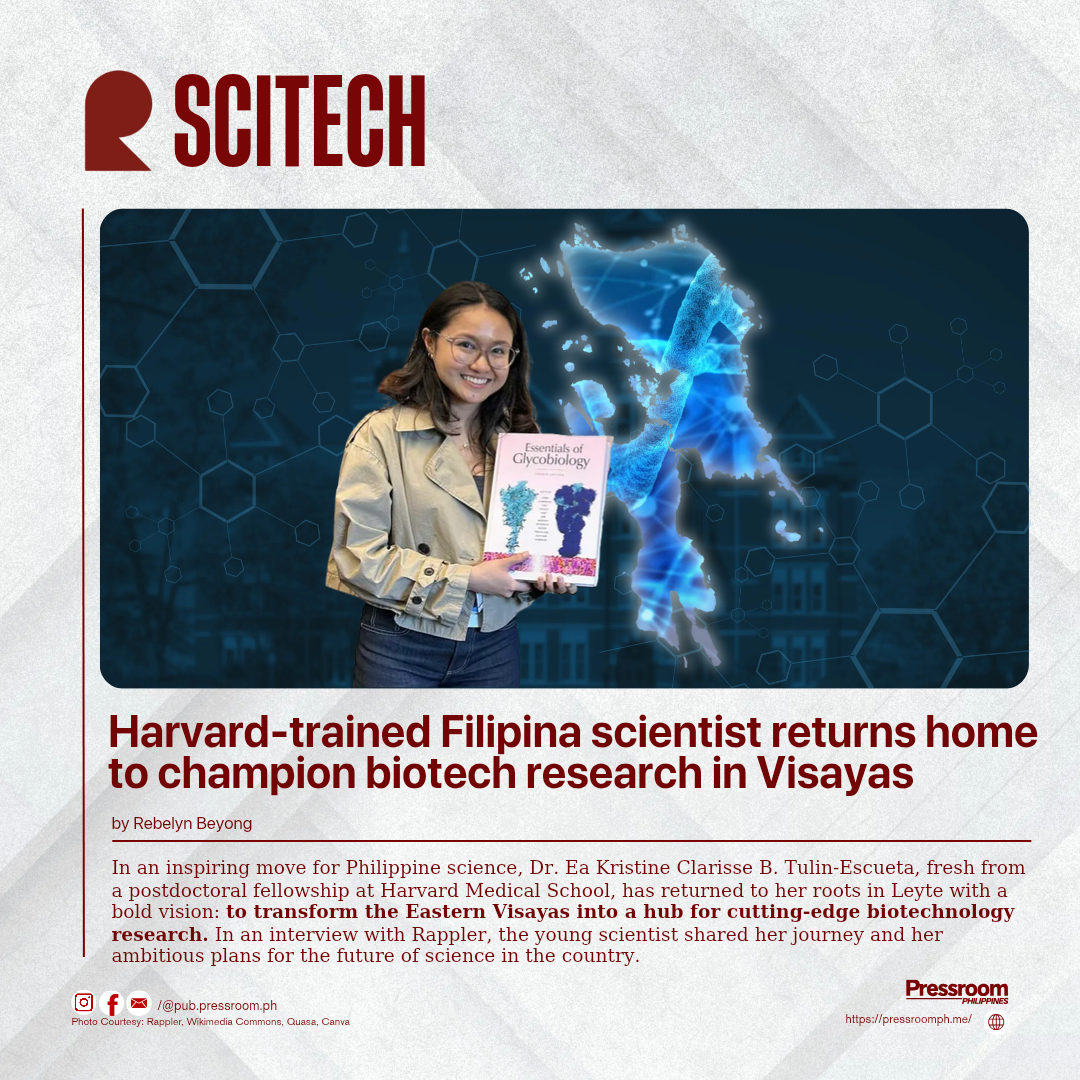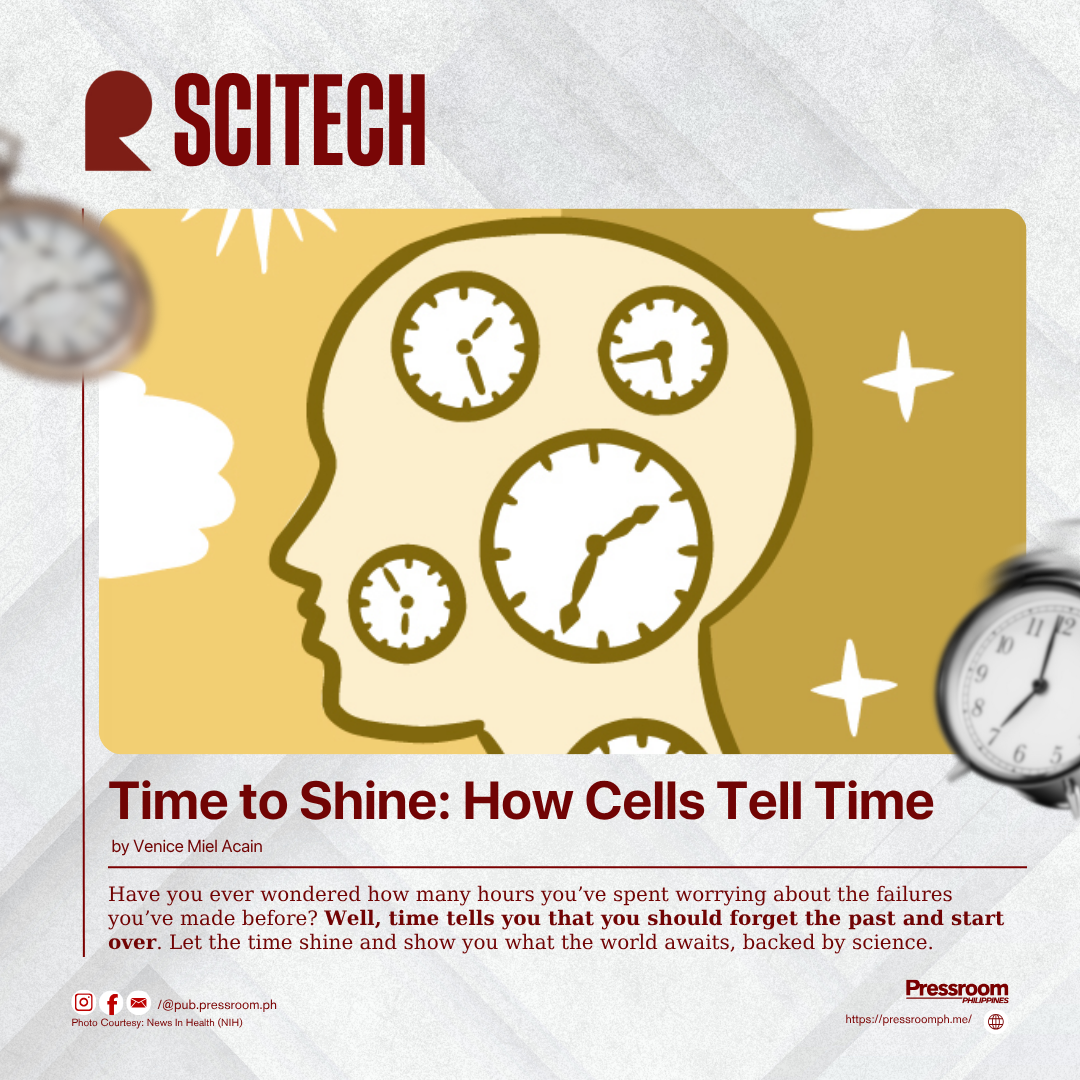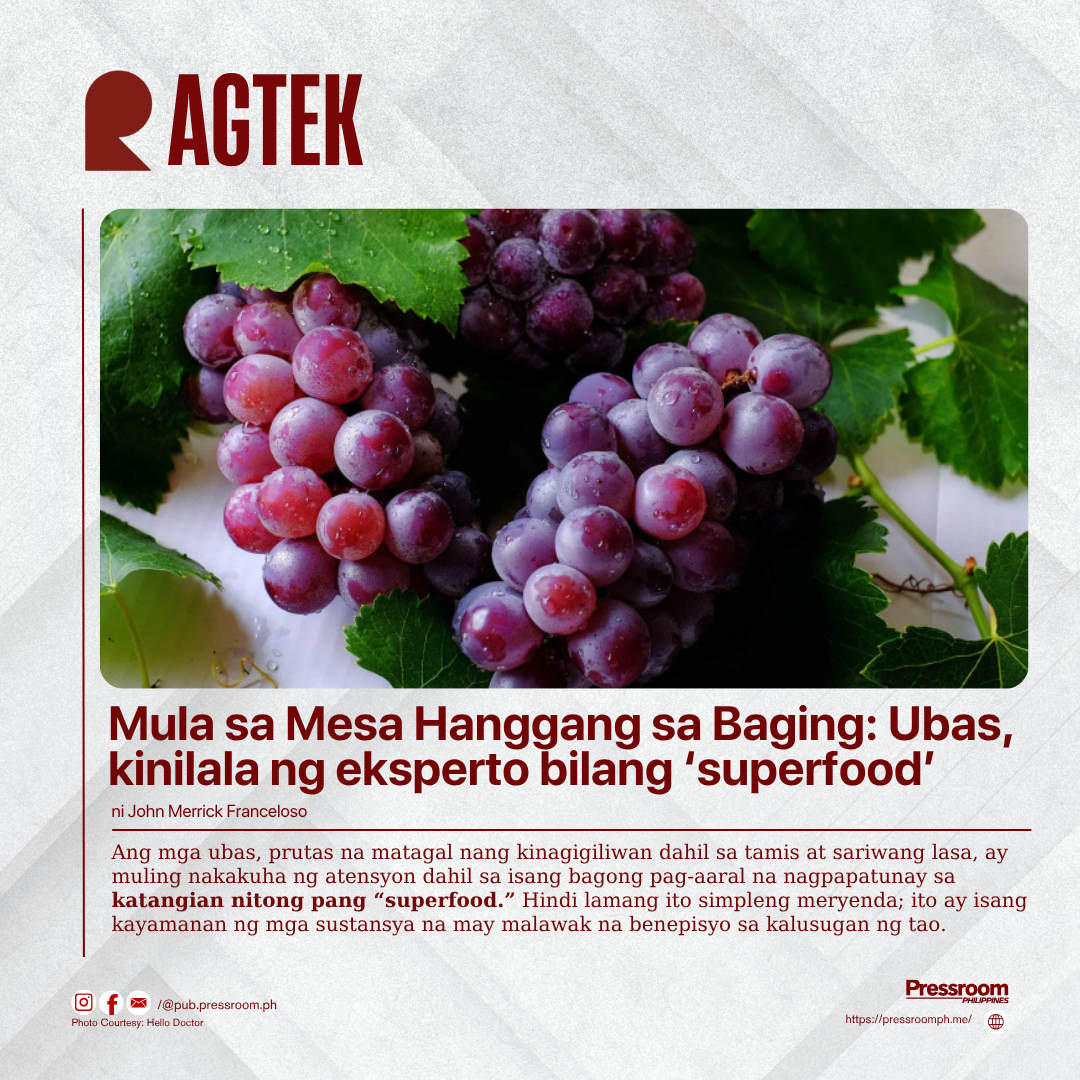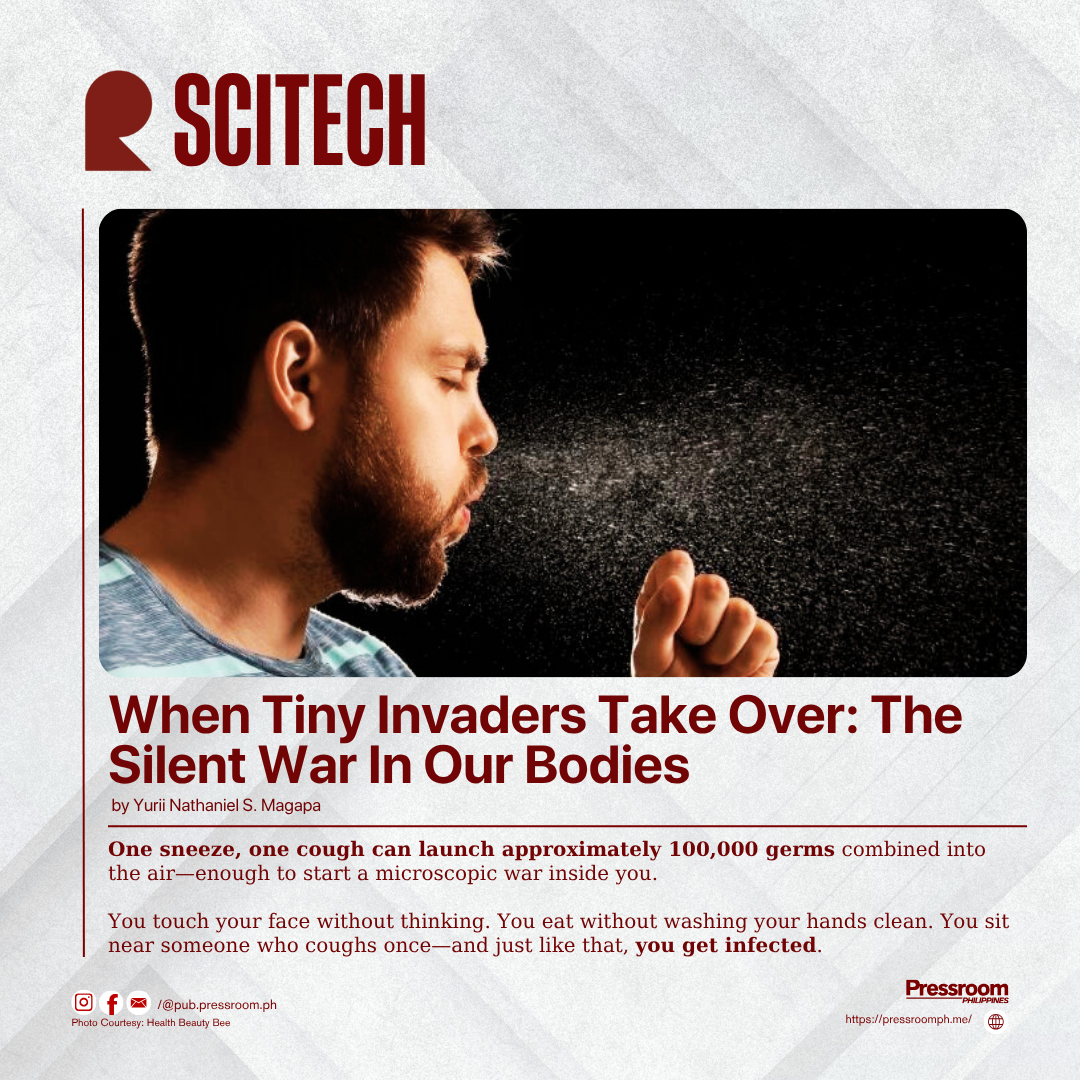In a promising development for public health, dengue cases in SOCCSKSARGEN (Region 12) have dropped by a significant 40% from January 1 to July 12, 2025, compared to the same period last year. Based on data from the Department of Health (DOH) Region 12 and reported by GMA News, the region recorded 7,128 cases this year down from 11,883 in 2024. This drop is even more impressive considering the rise in dengue cases nationwide, making Region 12 a standout in dengue prevention.
Health officials credit this achievement to strong community involvement. Instead of heavily depending on fogging operations, Region 12 encourages the community to follow the “4Ts” approach: Taob (turn containers upside down), Taktak (empty stagnant water), Tuyo (keep surroundings dry), and Takip (cover water containers). These are low-cost actions that empower every resident to contribute to collective efforts on initiatives against Dengue.
This grassroots-driven strategy is complemented by the DOH’s national 4S campaign: Search and destroy breeding sites, Secure self-protection, Seek early consultation, and Support fogging/spraying in hotspot areas. Public awareness efforts have helped spread these practices and strengthen early detection efforts in local communities.
The region’s success also highlights the power of early action. Organized responses, sustained clean-up drives, and widespread education have helped keep the disease under control. Schools and Local Government Units (LGU) have played a vital role in teaching and reminding people that when it comes to dengue, prevention really is better than cure.
Although some provinces like South Cotabato saw short-term spikes earlier this year, the region as a whole has maintained a downward trend. But health authorities are quick to remind everyone that the battle isn’t over yet. With the rainy season in full swing, there’s an urgent call to stay vigilant and keep up with these life-saving habits.
With SOCCSKSARGEN’s steady progress, the region is showing the rest of the country that with community unity and simple, science-based practices, people can make an impact in effective public health practices.
